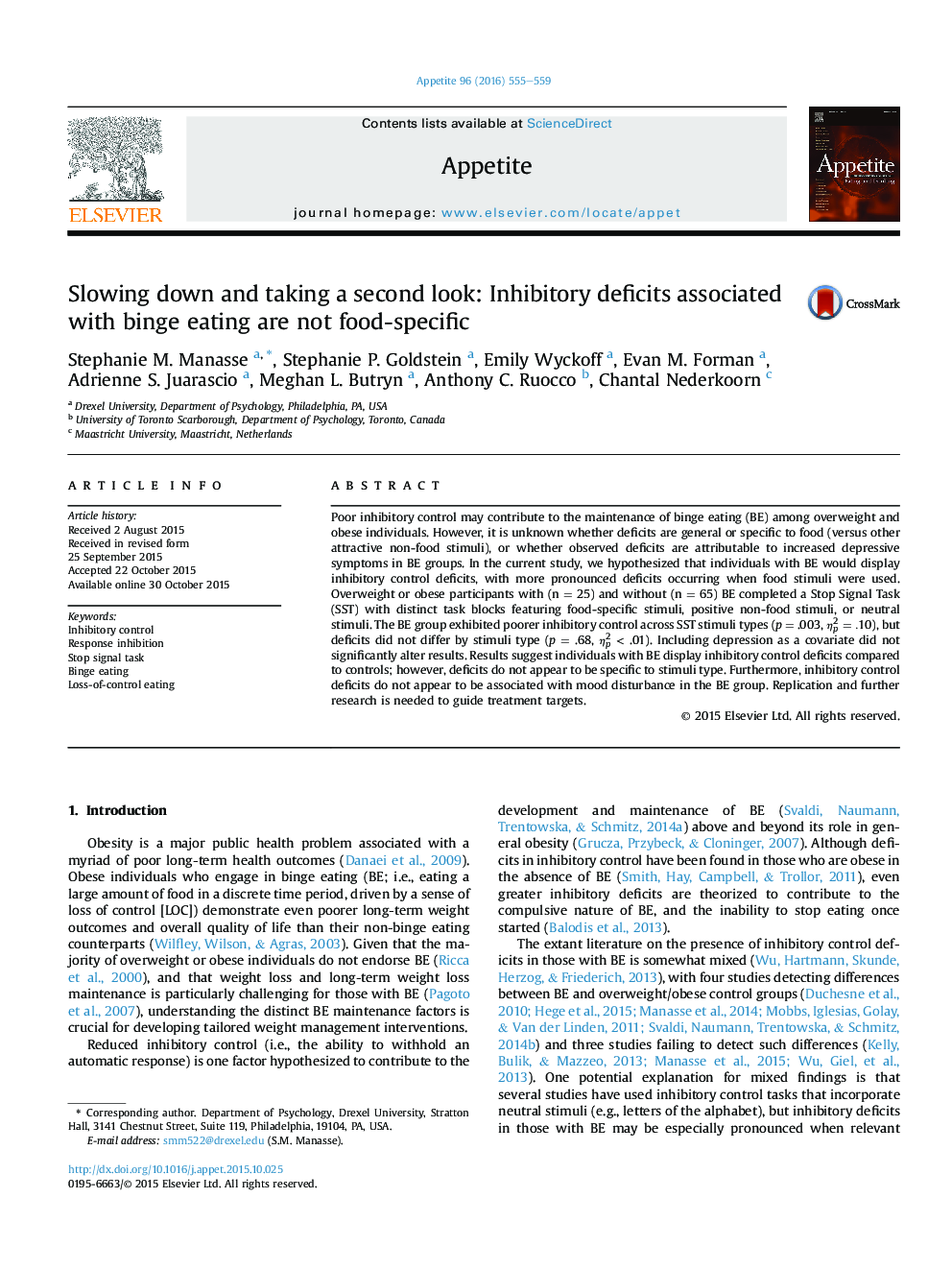| Article ID | Journal | Published Year | Pages | File Type |
|---|---|---|---|---|
| 7308511 | Appetite | 2016 | 5 Pages |
Abstract
Poor inhibitory control may contribute to the maintenance of binge eating (BE) among overweight and obese individuals. However, it is unknown whether deficits are general or specific to food (versus other attractive non-food stimuli), or whether observed deficits are attributable to increased depressive symptoms in BE groups. In the current study, we hypothesized that individuals with BE would display inhibitory control deficits, with more pronounced deficits occurring when food stimuli were used. Overweight or obese participants with (n = 25) and without (n = 65) BE completed a Stop Signal Task (SST) with distinct task blocks featuring food-specific stimuli, positive non-food stimuli, or neutral stimuli. The BE group exhibited poorer inhibitory control across SST stimuli types (p = .003, ηp2=.10), but deficits did not differ by stimuli type (p = .68, ηp2 < .01). Including depression as a covariate did not significantly alter results. Results suggest individuals with BE display inhibitory control deficits compared to controls; however, deficits do not appear to be specific to stimuli type. Furthermore, inhibitory control deficits do not appear to be associated with mood disturbance in the BE group. Replication and further research is needed to guide treatment targets.
Related Topics
Life Sciences
Agricultural and Biological Sciences
Food Science
Authors
Stephanie M. Manasse, Stephanie P. Goldstein, Emily Wyckoff, Evan M. Forman, Adrienne S. Juarascio, Meghan L. Butryn, Anthony C. Ruocco, Chantal Nederkoorn,
